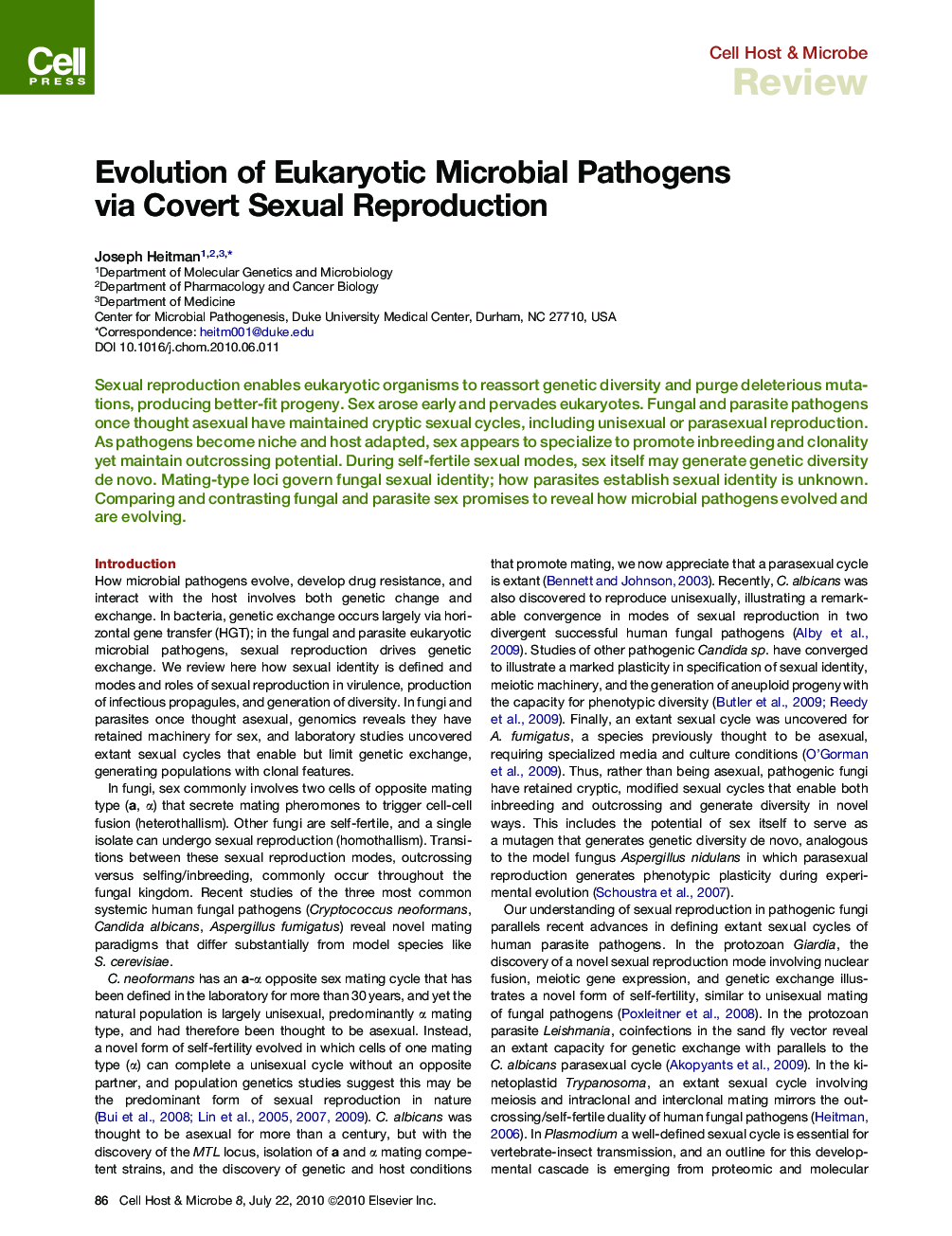| Article ID | Journal | Published Year | Pages | File Type |
|---|---|---|---|---|
| 4361521 | Cell Host & Microbe | 2010 | 14 Pages |
Sexual reproduction enables eukaryotic organisms to reassort genetic diversity and purge deleterious mutations, producing better-fit progeny. Sex arose early and pervades eukaryotes. Fungal and parasite pathogens once thought asexual have maintained cryptic sexual cycles, including unisexual or parasexual reproduction. As pathogens become niche and host adapted, sex appears to specialize to promote inbreeding and clonality yet maintain outcrossing potential. During self-fertile sexual modes, sex itself may generate genetic diversity de novo. Mating-type loci govern fungal sexual identity; how parasites establish sexual identity is unknown. Comparing and contrasting fungal and parasite sex promises to reveal how microbial pathogens evolved and are evolving.
